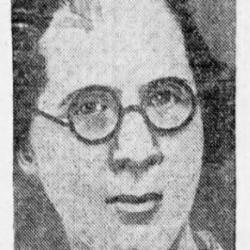*This article is written by Matthew J. Distefano, author of The Wisdom of Hobbits and other books.
It’s no secret that cannabis was used all throughout the ancient world—in places like Egypt and Israel, for example—and in a variety of ways. As a textile, hemp—marijuana’s more “benign” cousin—is second to none. It’s strong, light, and durable, so much so that even the American paratroopers of WWII had their chutes made out of it. Furthermore, given cannabis’ psychoactive and medicinal properties, it has been used ceremonially all throughout the ages, in oils, incenses, and the like. The earliest known documentation of this comes from the Greek historian Herodotus. Writing about the Scythians’ use of cannabis, he states:
The Scythians, as I said, take some of this hemp-seed [presumably, flowers], and, creeping under the felt coverings, throw it upon the red-hot stones; immediately it smokes, and gives out such a vapor as no Grecian vapor-bath can exceed; the Scyths, delighted, shout for joy.
And yet, in spite of this history that dates back thousands of years, many of us are just coming to the realization that this plant is actually medicine. It’s taking cases like Greta Botker’s to wake us up to the power of medical marijuana. And her case is not that of unlike so many others. This is a girl who, since the age of 5 months old, has experienced uncontrollable seizures, to the tune of 15 a day in fact. Her family, doing what any of us would probably do, tried medications—Onfi, Depakote, Felbatol, Keppra, and Prednisone—dietary restrictions, even brain surgery, all to no avail. As Greta’s mother, Maria, admits, “We really tried everything with Greta. We put our child through brain surgery, so a plant like marijuana was not going to scare me.”
However, the brutal truth of the matter was that the Botker family lived in Minnesota, a state that, at the time, prohibited the use of marijuana (Minnesota has since lifted this ban). So, Maria did what any mother desperate to see her child flourish would do; she picked up and headed west to Colorado, a state where marijuana was now legal. And, after finding just the right strain of cannabis—one that has only scant traces of the psychoactive ingredient THC—Greta began treatment. Wonderfully, it worked, knocking her 15 daily seizures down to 4 to 6. Furthermore, she was able to reduce her seizure medications from five down to two.
Cases like this should make us all pause and reflect on the power of medicinal plants like marijuana. And as Christians, we should reflect even more, if not for the sole reason that a huge part of Jesus’ ministry involved healing. And that’s not to assert that Jesus himself used cannabis, or that he even used it when healing others—although it’s certainly possible—but it is to say that if healing others is a big part of what it means to be a follower of Christ, then we should be at the forefront of encouraging healing wherever it can be found, even if it involves substances we’ve been slow to accept in the past.
So, what holds us back? Why are we so hesitant to embrace this God-given plant? I think the answer can be found in how we are reading our Bibles.
You see, we Christians have a tendency to use the Scriptures far too flippantly, often in order to denounce the behaviors of others that we find most objectionable or offensive. We do it when it comes to alcohol, when it comes to sex, even styles of dress and music and food. And, of course, when it comes to using marijuana. And on top of that, we often do it with brash certainty, even in the face of our own ignorance and preconceived notions.
But, what if we’ve been wrong, and what if the Bible mentions marijuana, just like it mentions alcohol, and what if it is seen in a positive light rather than strictly a negative one? Well, that’s just what a growing number of scholars are starting to suggest.
The first to do this was Dr. Sula Benet, a 20th century Polish anthropologist who specialized in Jewish cultural rites and practices. She argues that the ingredients for the holy anointing oil given to Moses by God include cannabis, rather than the traditionally held view that it is, instead, calamus. The recipe is found in Exodus 30:22–25, and includes the following ingredients:
- Pure myrrh (mar deror)
- Sweet cinnamon (kinnemon besem)
- Cassia (kiddah)
- Olive oil (shemen zayit)
- Calamus/Cannabis (kaneh bosm)
Obviously, the final ingredient, kaneh bosm, is where the point of contention lies. Traditionally, interpreters have understood that it means calamus, a tall wetland plant that has indeed been used throughout history as a medicinal plant. But, according to Benet, this is a misunderstanding that began around the third-century BCE, when the Greek Septuagint was being compiled. What she believes happened is that translators goofed on the Hebrew term “kaneh-bosm” and mistranslated it as “sweet calamus.” Then, as translations took shape over the course of history, this misunderstanding got passed down the line to folks like Luther, Tyndale, and others.
A better translation, Benet contends, is that the root word “kan” should be translated, not as “reed” but as “hemp.” The Ben Yehuda Hebrew-English Dictionary, written by “the father of modern Hebrew,” Eliezer Ben Yehuda, agrees, and also defines the Hebrew kaneh-bosm as “hemp.” Moreover, as Chris Bennett points out in Sex, Drugs, Violence and the Bible, “Around 1980, etymologists at Hebrew University in Jerusalem confirmed that cannabis is mentioned in the Bible by name, Kineboisin (also spelled Kannabosm) in a list of measured ingredients for ‘an oil of holy ointment, an ointment compound after the art of apothecary’ to be smeared on the head.” He goes on to also say that, “This etymological research was confirmed again that same year by Weston La Barre, who noted that “the term kanebosm occurs as early as both the Aramaic and the Hebrew versions of the Old Testament, hemp being used for rope in Solomon’s temple and in priestly robes, as well as . . . carried in Biblical caravans.”
Now, can we be certain that this is what was included in the sacred anointing oil used by Moses and the early Jewish people? Probably not. But it’s certainly possible. In fact, after speaking with a good friend of mine who is a Hebrew scholar, it is probably the most likely scenario, and for two reasons. First, and as we discussed at the onset, there is a fair amount of explicit evidence that cannabis was frequently used all throughout the Ancient Near East and in Egypt, especially in cultic contexts. Hence, it’s safe to assume that the possibility of it being used in a Hebrew context is present. And second, when the Hebrew priests burned aromatic things in the temple, they did so in order to enhance the numinous quality of the sanctuary, to even calm and provide pleasure to the deity (in their case, Yahweh). Cannabis, then, would be a substance that fits the bill, so to speak. In fact, it fits the bill most appropriately.
Again, we cannot be certain of this, but what we can be certain of is that as Christians, one of our main tasks is to bring about healing to those who are suffering. Cannabis does that. It does that for people who suffer from epileptic seizures, those who suffer from Crohn’s Disease and Ulcerative Colitis, and those, like myself, who suffer with Celiac Disease. And it does it for a whole host of others who suffer with other various ailments. So, the question we should ask ourselves is this: Will we take a risk, go out on a limb, and affirm this “very good” seed yielding plant that our “very good” God created (Gen. 1:29)? Many who suffer are counting on us to do so.
And that’s where the rubber meets the road for Christians. How are we going to respond to the suffering of others, and in what ways are we going to help stop it? Regardless of what the Bible says or does not say, regardless of whether Moses anointed things with cannabis or calamus, regardless of whether or not Jesus used cannabis oil or whether he didn’t use anything but his bare hands when he healed, what we must remember is that we, as moderns, should be using all the various methods available to help put an end to evil and suffering. Full stop. End. Of. Story.
Isn’t this our hope? That suffering one day comes to an end? Doesn’t our final book of the Bible—the book of Revelation—end with hope? Don’t nations enter the gates of New Jerusalem to partake of the leaves of the tree that are for the healing of the nations? Of course, they do. It’s plain as day right there in the 22nd chapter. In the meantime, then, shouldn’t we appreciate the analogy and start using the leaves—well, the flowers—of the tree—actually, the plant—that heals the lives of others? That plant is cannabis. May we use it wisely and may we permit others to use it freely.

















